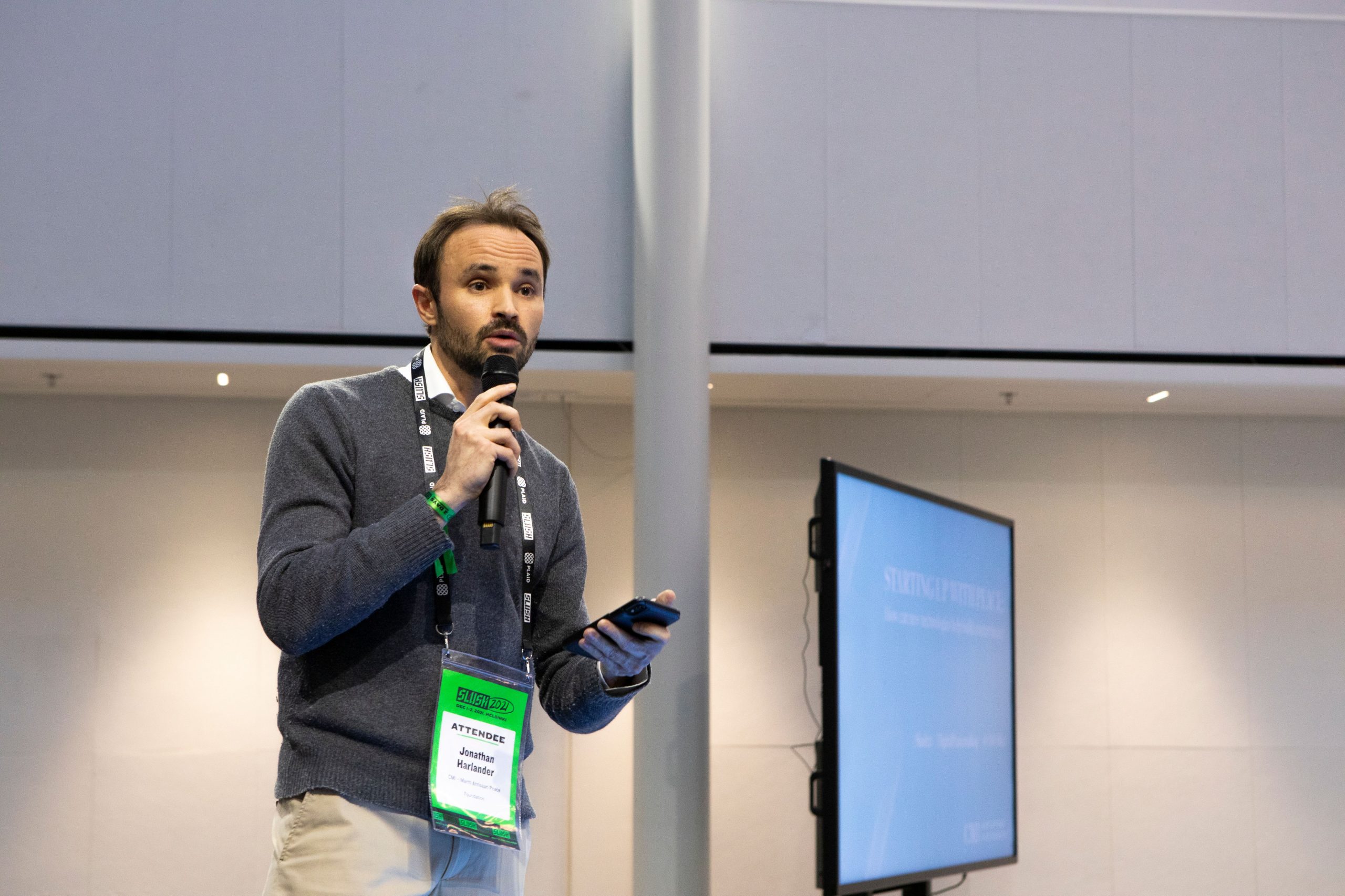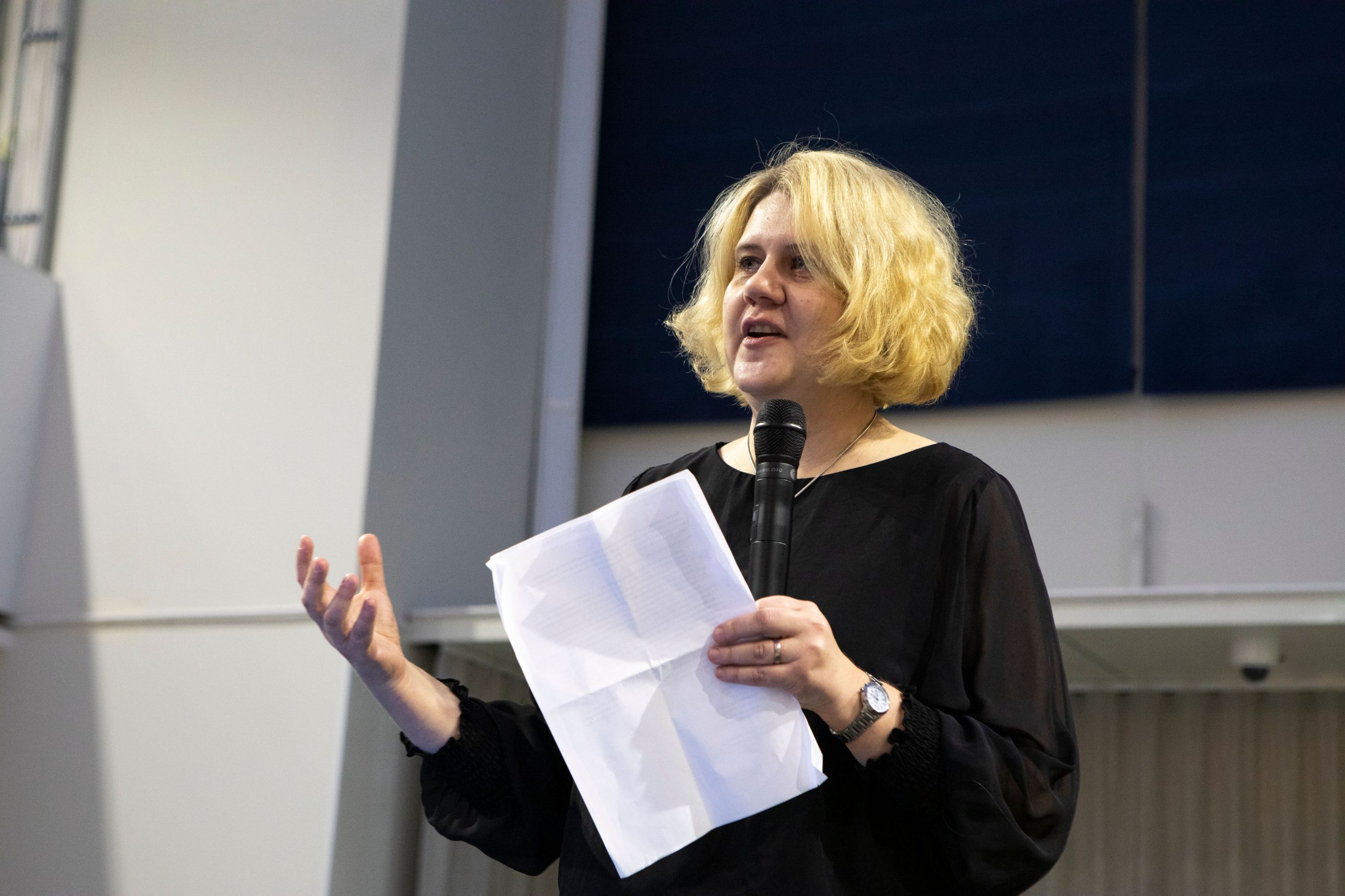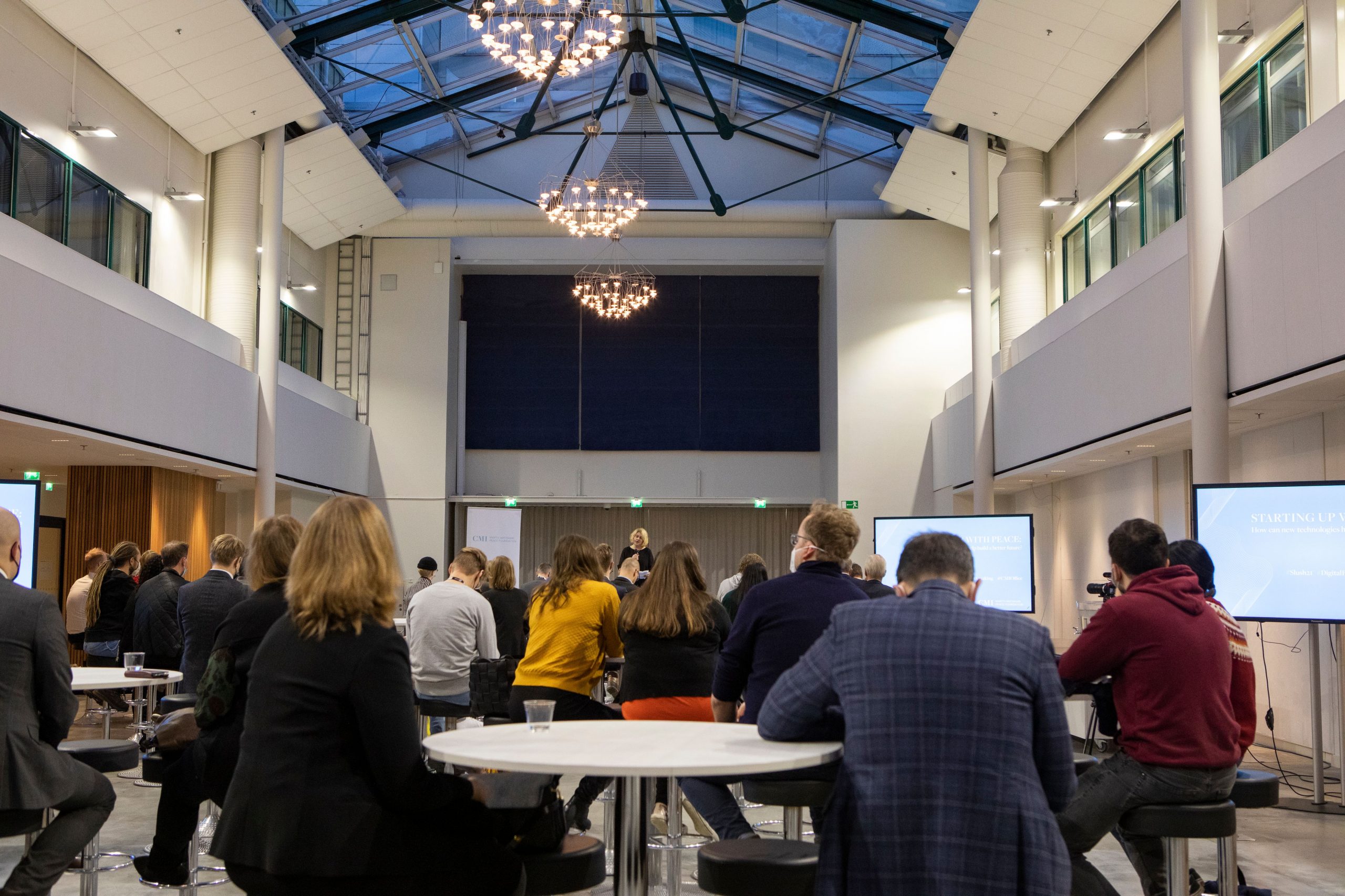Starting up with peace: Peacemakers and technologists discuss the potential of digital tools at Slush side event
CMI held a Slush side event ‘Starting up with peace: How can new technologies help build a better future’ during which participants discussed the role technologies can play in peacemaking.

Jonathan Harlander, Senior Manager for Digital Peacemaking at CMI said that CMI wants to find digital solutions that make peace processes more inclusive.
The event shed light on the practical uses of digital technologies in peacemaking. It enabled CMI to bring technologists and peacemakers together to foster collaboration, and promoted opportunities the field provides for technology startups and companies.
Digital technologies are shaping everything around us in both positive and negative ways. The environment, society and people’s well-being are being heavily transformed by the increasing use of technology. So are peace and conflicts.
Peace is a baseline necessity for any human development to flourish, so it is crucial to explore how digital technologies could enable peacemakers to bring about better peace settlements.
Marko Ahtisaari, Artistic Director of the Helsinki Festival and CMI Board Member, opened the event by highlighting the need for collaboration between peacemakers and tech companies to seize the opportunities that digital tools offer for peacemaking. He said that people can choose whether they want to use technology for good or bad.
“Even though we live in a highly digitalised world, technology is not something that ‘just happens to us’, it is not beyond our agency.”

Maria Mekri, the CEO of SaferGlobe, empashizes the importance of small changes that lead to bigger ones.
Maria Mekri, the CEO of SaferGlobe, an independent peace and security think tank, said that events like Slush, bringing together tech entrepreneurs and investors, can widen the range of actors in peacemaking, and inspire innovative thinking. “Peace really needs to be built here, there and everywhere.”
She stressed that we shouldn’t aim for big and dramatic changes but rather small nudges that then lead to bigger changes in creating a more peaceful world. “Companies thrive when they know they are doing something important.”
Greater inclusivity
Mekri said that new technologies can help build a more peaceful future in several ways. For instance, they can be integrated to a toolbox for peacemakers and help them work on problems in a new way.
Digital tools can be used to better understand conflict, render peace processes more inclusive, and increase the security of exchanges between various parties.
Increasing inclusivity in peacemaking is one of CMI’s focuses with digital technologies. To this end, CMI has been partnering with Zippie, a payments platform.
The platform enables airtime vouchers to be sent to mobile phone users, helping people to join CMI’s virtual meetings, explained Antti Saarnio, Co-founder and CEO of Zippie.
This is useful in situations where local participants would otherwise not be able to join virtual meetings due to the high cost of data. The service has helped ensure that, for instance, women stay connected throughout the pandemic.

CMI’s side event at Slush brought together technologists and peacemakers to foster collaboration.
Safeguards and uncertainties
Marietje Schaake, International Policy Director at the Cyber Policy Center, discussed the challenges that digital technologies pose to peace and underlined the importance of sufficient data protection. Disinformation and inoperative systems can undermine trust between conflict parties and is hard to regain.
“Sometimes the aim might be to smudge the negotiations itself, so preventative work and solutions for democracies to respond to these challenges are needed”, said Schaake.
Jonathan Harlander, Senior Manager for Digital Peacemaking at CMI, said that many have considered face-to-face interaction as the only way to develop trust with conflict stakeholders, and that digital tools are essentially too risky for sensitive processes, as they could affect their confidentiality.
“Peace requires a lot of trust, which is why technology has not been used in peacemaking so much. Today, we want to challenge that.
“We should, however, start with the problem, and then apply the suitable technology, because even though technology is a great solution, it is not an intrinsic value itself.”
Photos: Maria Santto